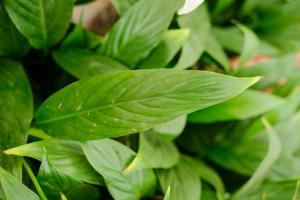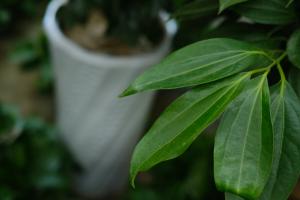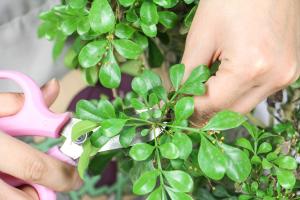How to Care for Rose Plants in Pots
Rose plants are just as beautiful in pots as they are in the garden. Whether you’re growing miniature roses or large rose varieties, taking proper care of your potted roses is important for their growth and continued bloom. Here are some tips on how to care for your rose plants in pots:
1. Choose the Right Pot
When choosing a pot for your rose plant, make sure it has drainage holes to prevent your plant from drowning. The pot should also be sufficiently deep to accommodate the root system of your rose. The material of the pot doesn’t matter as much as the drainage holes, but clay or terra cotta is ideal as they absorb excess moisture and provide better aeration for the roots.
2. Soil Preparation
The soil you use for your potted rose plant should be well-draining, nutrient-rich, and slightly acidic (pH 5.5-7). You can mix compost or well-rotted manure with garden soil to make a good potting mix. Fertilize the soil at least twice a month with a balanced fertilizer to keep your rose plant healthy.
3. Watering
Water your potted rose plant deeply once a week, but make sure the soil is dry to the touch before watering. The amount of water you give your plant will depend on the size of the pot and the environment it’s in. During hot and dry weather, you may need to water your plant more frequently.
4. Pruning
Prune your rose plant regularly to encourage new growth and maintain its shape. Deadheading or removing spent flowers also helps to promote new blooms. Make sure you use sharp pruning shears to avoid damaging the plant, and sterilize them before and after use to prevent the spread of disease.
5. Sunlight and Temperature
Rose plants need at least 6-8 hours of direct sunlight per day to bloom properly. However, if your environment is too hot, your potted rose plant may require more shade to avoid getting stressed. Potted roses are more susceptible to frost, so if your climate gets too cold, bring your plant indoors or cover it with a frost cloth at night.
6. Insect and Disease Control
Potted rose plants are more vulnerable to insects and diseases than those planted in the garden. Keeping the plant well-cared for and healthy is the best defense against pests and diseases. However, if you do encounter any problems, there are many organic and chemical treatments available that can help treat or prevent damage to your rose plant.
Conclusion
By following these tips, you can ensure your potted rose plant thrives and provides you with beautiful blooms. Proper selection of the pot, soil preparation, watering, pruning, and light exposure are all key to the health of your rose plant. And if you ever encounter insect or disease problems, remember that there are treatments available to help protect your plant.

 how many times do yo...
how many times do yo... how many planted tre...
how many planted tre... how many pine trees ...
how many pine trees ... how many pecan trees...
how many pecan trees... how many plants comp...
how many plants comp... how many plants can ...
how many plants can ... how many plants and ...
how many plants and ... how many pepper plan...
how many pepper plan...






























